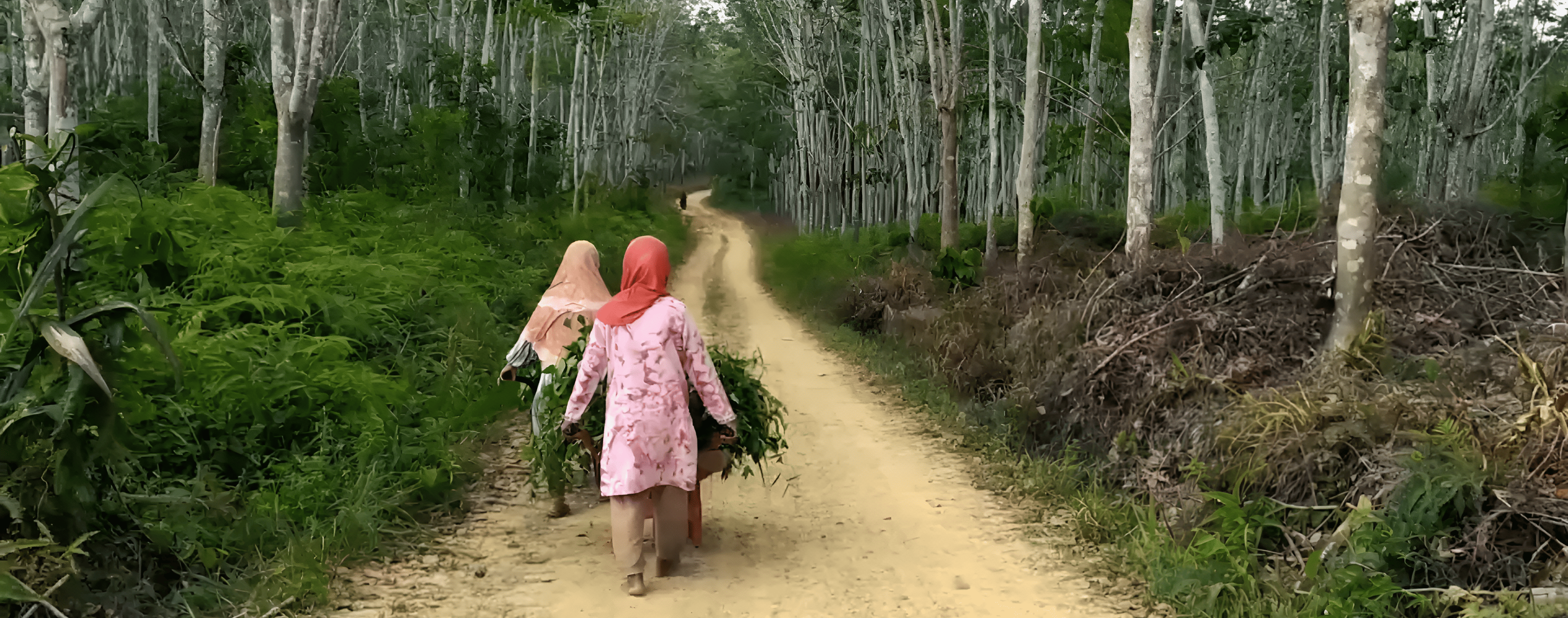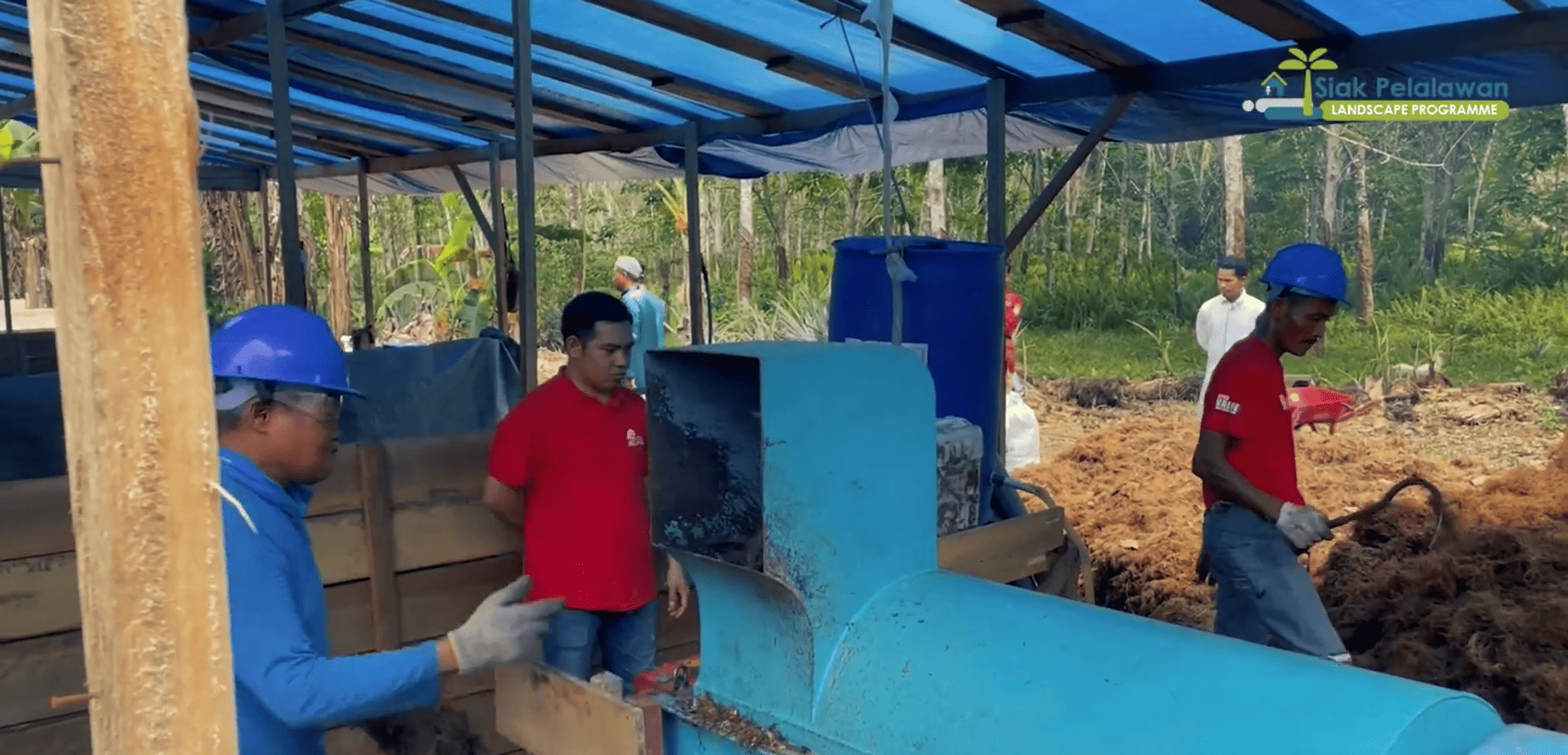“I would like to say a thousand thanks”: forging a path towards sustainability in Indonesia
November 14, 2024

In the quiet village of Lubuk Keranji Timur, nestled in the Bandar Petalangan District of Pelalawan Regency, Riau Province life revolves around the rhythm of nature. This village, home to 980 residents spread across four hamlets, thrives on its agricultural roots. The villagers primarily farm oil palm and rubber, and cultivate crops in their gardens.
For years, the villagers of Lubuk Keranji Timur used traditional farming methods for palm oil and rubber production, relying on extensive land-use practices and large-scale production, that often prioritised immediate yield over long-term sustainability.

However, a transformative wave of change began in 2021 with the intervention of the Siak Pelalawan Landscape Program (SPLP). The SPLP aimed to introduce sustainable agricultural practices and provide essential assistance to improve the villagers' livelihoods. Lubuk Keranji Timur is one among the 52 villages and two districts that is currently assisted by SPLP and managed by Daemeter, Proforest, and Jejakin. The project is one of the four landscape programmes funded by the Swiss State Secretariat for Economic Affairs (SECO) and brought together by the United Nations Development Programme (UNDP) through the Sustainable Landscape Programme in Indonesia (SLPI) and the SPLP Coalition of Companies to protect natural ecosystems at scale, improve agricultural production and boost the livelihoods of the local communities.

"We, as the village government, wholeheartedly support the activities carried out by the SPLP" says Ali Akbar, the village secretary, reminisces about the early days of the SPLP's involvement. – “One of the most significant initiatives has been the development of compost powder and sweet corn demonstration plots”.
The Sumber Rezeki Farmer Group, a local farmers' collective, was at the forefront of this initiative. With the guidance of an organic fertiliser consultant, Mr. Sinambela, the group embarked on a journey of transformation. They began by processing empty oil palm fruit bunches, animal manure, and other raw materials into organic compost. The meticulous process involved milling, dumping, stirring, watering, and monitoring the compost's temperature and moisture content before packaging it for use.
Mr. Sinambela, passionate about organic farming, emphasizes the importance of sustainable practices. "What we need to pay attention to when planting corn so that it is sustainable is to always use organic fertiliser" he explains. The demonstration plot for sweet corn became a testament to the benefits of using homemade organic fertilisers.
Edi Santoso, the chairman of the Sumber Rezeki Farmer Group, shares the group's newfound enthusiasm. "We process the land without burning, using basic fertiliser made from organic materials that we make ourselves," he says. This method not only preserves the soil's health but also reduces environmental impact.
The compost processing and sweet corn demonstration plot activities have become a vital source of income for the farmers. "These activities are a source of livelihoods besides palm oil and rubber commodities," Edi adds, highlighting the diversification that has brought stability to the village's economy.






Slamad, another member of the Sumber Rezeki Farmer Group, expresses his gratitude: "We would like to say a thousand thanks. Hopefully, what has been introduced by SPLP is useful for us. In the future, we hope SPLP will continue accompanying us and helping us so that we can become independent and prosperous."
As the sun sets over the lush fields of Lubuk Keranji Timur, the villagers look forward to a brighter future. The SPLP's efforts have not only improved their farming practices but also instilled a sense of hope and resilience. With each passing day, the farmers of Lubuk Keranji Timur are forging a path towards sustainability and prosperity, one compost pile and sweet corn stalk at a time.

From an island of change to a whole landscape, the Sustainable Landscape Programme in Indonesia aims to drive large-scale lasting change on Indonesia’s productive landscapes through multi-stakeholder collaboration. Read more here.
Credits: The information from this article was extracted from a SPLP video titled “Alternative Economy” by Bono Production (SPLP field facilitators). Further information can be found here.

 Locations
Locations